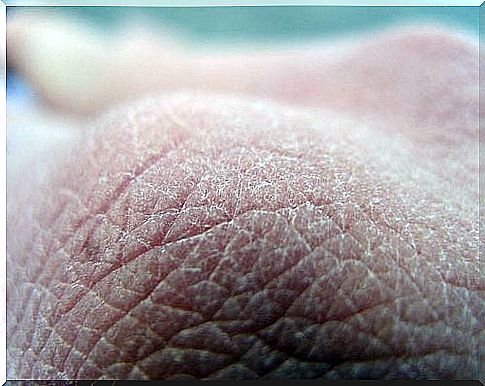5 Unknown Symptoms Of Diabetes

In this post we will talk about 5 unknown symptoms of diabetes. Diabetes is a disease that occurs when the glucose levels in the blood are too high, which damages the eyes, kidneys and nerves in some cases.
Unknown symptoms of diabetes
Not everyone diagnosed with diabetes has the usual symptoms such as thirst, numbness in the hands or feet, unexplained weight loss and frequent urination.
Today, we would like to talk to you about some of the lesser known symptoms of diabetes. If you have any of these symptoms, be aware and consult your doctor immediately.
Skin irritation

One of the lesser known symptoms of diabetes appears when the glucose levels in the blood exceed the healthy values, leading to dry, itchy skin.
The itching may occur on the hands, arms, legs and feet. So if your skin is irritated or itchy, make sure it is not caused by the weather. If not, get your blood sugar checked.
Diabetes affects the blood circulation and the extremities are typically where this skin irritation occurs.
Dandruff or dry scalp
Many people never imagine that this can be a symptom of diabetes. When you have excess sugar in your blood, your body usually tries to remove it in the urine.
However, by removing excess fluid from the body, some areas begin to experience the effects of dehydration. This causes dandruff to form on the scalp, which is both uncomfortable and irritating.
It can also cause seborrheic dermatitis, commonly referred to as dandruff. As the skin is the largest organ in the body, it can spread to the entire scalp.
In addition, inflammation in this area provides the right conditions for the growth of Pityrosporum fungus that causes dandruff.
This microorganism feeds on the oils of the scalp and can spread quickly in just a few days as well as manifest itself as the well-known white flakes.
Snoring

This symptom may surprise you a little. Breathing problems during sleep can raise blood sugar. This condition is known as sleep apnea.
While it can be annoying, it is best to avoid this symptom due to the fact that it can cause your body to release stress hormones during sleep that significantly raise blood sugar levels.
It is important to treat and prevent the onset of diabetes.
Snoring is associated with a number of diseases that you may think have nothing to do with diabetes.
However, it can be a predominant factor in developing diabetes, as it is caused by interruptions to normal breathing, as the muscle that pulls the airways together relaxes.
Snoring makes it difficult for oxygen to enter the lungs, which interrupts blood sugar metabolism.
Hearing problems
Did you know that hearing loss can be a sign of diabetes?
If you find that you need to turn up the volume on the TV because it is difficult for you to hear, or if you often have to ask other people to repeat things, tell your doctor.
Several studies have shown that hearing loss can be a sign of incipient diabetes.
Those with high blood sugar are more likely to have auditory problems than those with healthy blood sugar levels.
This is due to the fact that really high blood sugar levels damage nerves and blood vessels in the inner ear, which is detrimental to their function.
Changes in vision

Diabetes produces changes in body fluids and this can affect your vision. This is a really common symptom. Some patients have actually started to look better after being diagnosed with the disease.
You suddenly no longer need your glasses because you can see well without them. When this happens, the improvement is not permanent. Once the blood sugar level stabilizes, the patient again has to wear corrective lenses.
But don’t worry, it’s not the same as diabetic retinopathy. Diabetic retinopathy occurs when the blood vessels behind the eye become blocked.
In the early stages of diabetes, the eyes are unable to focus because the blood sugar level is too high.
This can cause changes in the shape of the eyes, but it does not mean that you will lose your sight to diabetes.
These symptoms are often ignored because they are generally associated with other diseases.
If you notice any of these changes in your body, including the more common symptoms, you should see a specialist to get a proper diagnosis and treatment.









